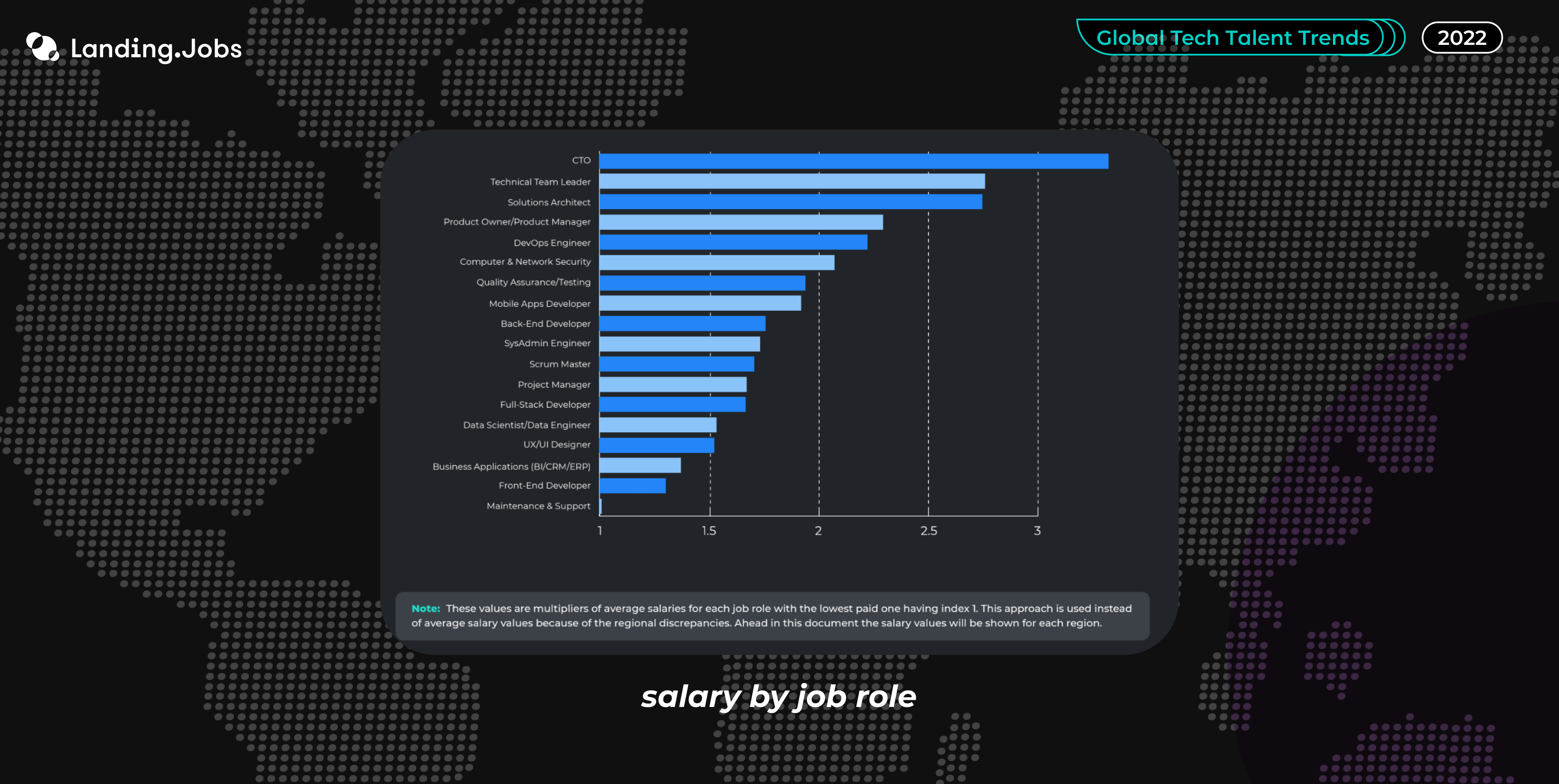DevOps is a growing sector attracting people from all different paths of life that combines tech, philosophy, management and more all in one exciting career. This article will outline what a DevOps engineer is, what to expect in terms of salary and job availability, and the top skills and requirements needed to get into this line of work. So, without further dillydallying:
What is a DevOps Engineer?
A DevOps engineer is responsible for leading and coordinating different teams and their activities to develop and maintain a company’s software tools. DevOps is short for “development operations” and is concerned with automating software creation and construction.
The primary goal of the DevOps engineer is to speed up and simplify the software development cycle, have updates more easily available for workplace solutions like conference calling software, and create a system for dependable releases.
How many jobs are there for DevOps Engineers?

It’s hard to say conclusively how many DevOps jobs there are in the world, especially as this number is constantly changing, but at the time of writing, there are over 48,000 DevOps jobs listed on LinkedIn in the United States — and 16 on the Landing.Jobs platform in Europe.
How much do they pay?
The average base salary for DevOps engineers in Europe is €45,000+ per year, and professionals with more than 6 years of experience are the ones who best earn (€64,000+). In the US it’s $103,505 per year. However, when you take into account additional pay, such as commissions or profit-sharing, Glassdoor estimates the total pay value to be $123,136. DevOps engineers often work overtime or spend time on call, as software issues can pop up at odd hours, which also adds to their take-home salary.
Are you tempted to tell your boss you’re quitting and starting over in the tech field? We don’t blame ya!
Types of DevOps Engineers
DevOps engineers come in different shapes and sizes, taking on various specific roles depending on their interests. The needs of the organisations where they work are also a deciding factor. Some of the types of DevOps engineers include the following:
- Software developers: Write code using different coding languages like R or Python.
- Release managers: Manage ongoing software updates, like VoIP service app improvements and bug fixes.
- Security engineers: Responsible for ensuring the security of the systems software tools.
- Quality assurance engineers: Review and test new code.
While there is still a gender gap in technology, more and more companies are making big efforts to address this, so now is probably the best time in history to apply for these types of roles.
What education and training do you need?

A large number of job descriptions for DevOps engineers ask for a bachelor’s degree in computer science or a related field at least. These could be degrees in software design, software engineering, computer programming, information technology, and others. Some employers will accept equivalent work experience, however.
If the thought of entering into student debt is super off-putting, it’s worth noting that some European universities offer almost free tuition to international students.
You can also go down the certification route since some companies look for certifications in subjects like Linux administration and SQL server development. There are various online and in-person resources, such as this Hadoop Tutorial, available.
Some offer certification in different DevOps areas of expertise that can enhance your DevOps engineer resume and skill set in a job.
Some examples of certifications include:
- Microsoft Certified: DevOps Engineer Expert
- AWS Certified DevOps Engineer
- Certified Kubernetes Administrator (CKA)
- Architecting with Google Cloud Platform
- Puppet Certified Professional
- Docker Certified Associate (DCA)
- Free DevOps Course from LinkedIn
- Free DevOps Training Course by Microsoft
If you have knowledge of different workplace solutions like CRM, server admin tools, or Dialpad hosted PBX as well as how to code in at least one language, that’s already a great start.
What skills do you require?
A DevOps engineer will need a combination of technical skills and workplace skills.
Technical skills
DevOps engineers are engineers first and foremost, so they need standard engineering skills such as math and analytical thinking. As well as these, they should also have a grasp of the following:
- Coding: Some DevOps engineers will not always be asked to write code, but it’s essential that they a least understand the basics of whatever coding language is used at their company.
- Project management: the DevOps engineer is responsible for ensuring that a company’s software is up-to-date, secure, and free of glitches. This means that they need to be continuously looking for and implementing improvements. A good DevOps engineer will show great project management skills, such as taking initiative and planning. Other skills include project execution and monitoring everything, from small glitch fixes to huge updates.
- Server administration: DevOps engineers are responsible for the admin of their company’s networks and servers for any software being created. This includes opening accounts for colleagues, updating their access permissions, and making sure that everything is continuously getting backed up. It is also their job to outline the steps junior IT colleagues should follow when troubleshooting or debugging.
Specific software knowledge

DevOps projects are carried out over various stages, and each stage has a set of tools that can facilitate that stage. If you are hoping to become a DevOps Engineer, familiarising yourself with some of the following tools and improving your tech profile could prove useful:
1. Source code management
DevOps engineers use source code management software to save codes, merge new and old codes, and control code versions. It’s also useful for combining source code between team members. Commonly used tools for this include Git, Github, and Gitlab.
2. Configuration management
Configuration management tools are used for monitoring OS and software configurations. They are helpful for managing configurations across hundreds and thousands of servers by clicking a button.
3. Continuous Integration
Continuous integration, or CI, automates code integrations from different developers into just one piece of software. Two of the main tools for Continuous integration are Bamboo and Jenkins.
4. Continuous testing
Three of the most common tools for continuous testing are TestComplete, Selenium, and TestingWhiz. Continuous testing minimises feedback waiting time after testing the code, where the code is examined using automation testing tools.
7. Continuous monitoring
DevOps engineers use continuous monitoring to keep an eye on the application’s performance, downtimes, and error logs. Some of the primary tools used for monitoring include Zabbix, Nagios, and Splunk.
8. Containerisation
Containerisation consists of making an operating system virtual so that different containers running different apps are able to share one operating system and the same system resources. Some top containerisation providers include Docker, vagrant, and Kubernetes.
Workplace skills
As well as technical know-how, DevOps engineers are also required to have some soft skills that make them better at their jobs. DevOps engineers should know how to work in a team since they spend much of their days working with colleagues and third parties from different professional and cultural backgrounds. In order to succeed, they need to hone the following skills:
- Communication: A large part of ensuring that software is always up-to-date and bug-free requires talking with tech support colleagues. It’s important to be able to listen to feedback, carry it back to the team, and think of ways to incorporate it. It’s not a one-person operation. DevOps engineers need to be able to explain problems and solutions clearly, and to a diverse audience and understand and improve the culture of the company.
- Training: A good DevOps engineer will continuously search for ways to improve their team’s skillset and the software using resources such as MarkUp.io. This requires identifying any weak spots to work on and finding ways to improve them. This can consist of training colleagues or finding new talent to bring on board.
Code tutorials, online learning platforms, and technical blogs are valuable resources that DevOps engineers leverage to expand their knowledge and stay up-to-date with the latest industry practices and technologies.
- Flexibility: Since bugs and glitches can occur at all hours of the day or night, DevOps engineers need to be available. They will often work shifts and irregular hours in order to be available and on standby to resolve any problems.
- Collaborate: DevOps engineers collaborate seamlessly with frontend developers for hire, leveraging their expertise in infrastructure management, automation, and deployment processes to align with frontend requirements and ensure a seamless integration of backend and frontend components.
By working closely together, they optimize application performance, streamline workflows, and achieve project success through effective communication, shared goals, and a coordinated approach to development and deployment.
Do I need work experience?

DevOps engineers need to have quite a lot of experience with coding languages and software tools. One option is to get work experience in IT, system administration, or software development as a stepping stone towards becoming a DevOps engineer.
An entry-level system administrator role or help desk role can be the open door you need to gain experience with software maintenance. You can also job shadow other engineers and write code to automate the processes in your office if you’re in a tech position.
Getting an internship in DevOps is also invaluable since you can gain real-world experience. And while you’re waiting for companies to hire you, you can create a GitHub account to upload your projects, create a personal website with cheap domain names UK, and update your CV. You can also practise your coding from the comfort of your own home.
DevOps: an exciting growing field
To maximise your chances of getting a job with a DevOps role, you have a multitude of options ahead of you. These can include studying a computer science-related programme, getting some certifications under your belt, acquiring some IT-related job experience and climbing up the ranks at your company.
There are thousands of DevOps engineer jobs in the US alone and even more across the globe. Needless to say, it is an attractive job option for anyone interested in coding and computers.







0 Comments